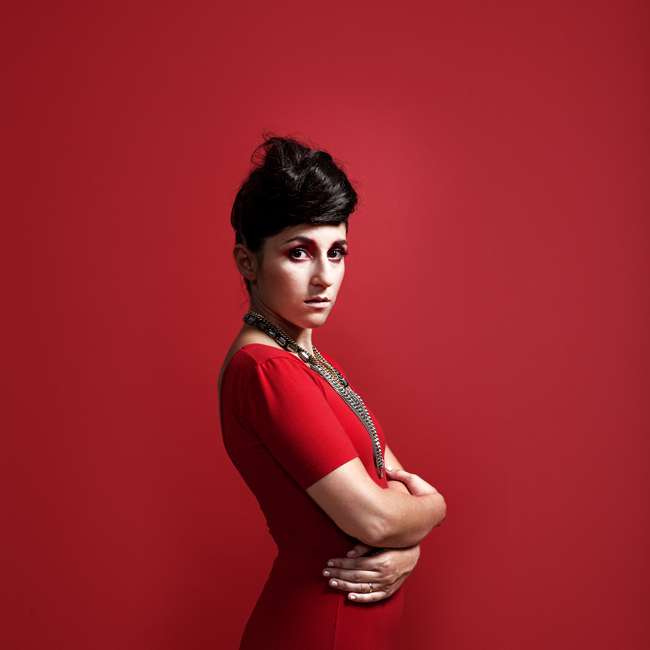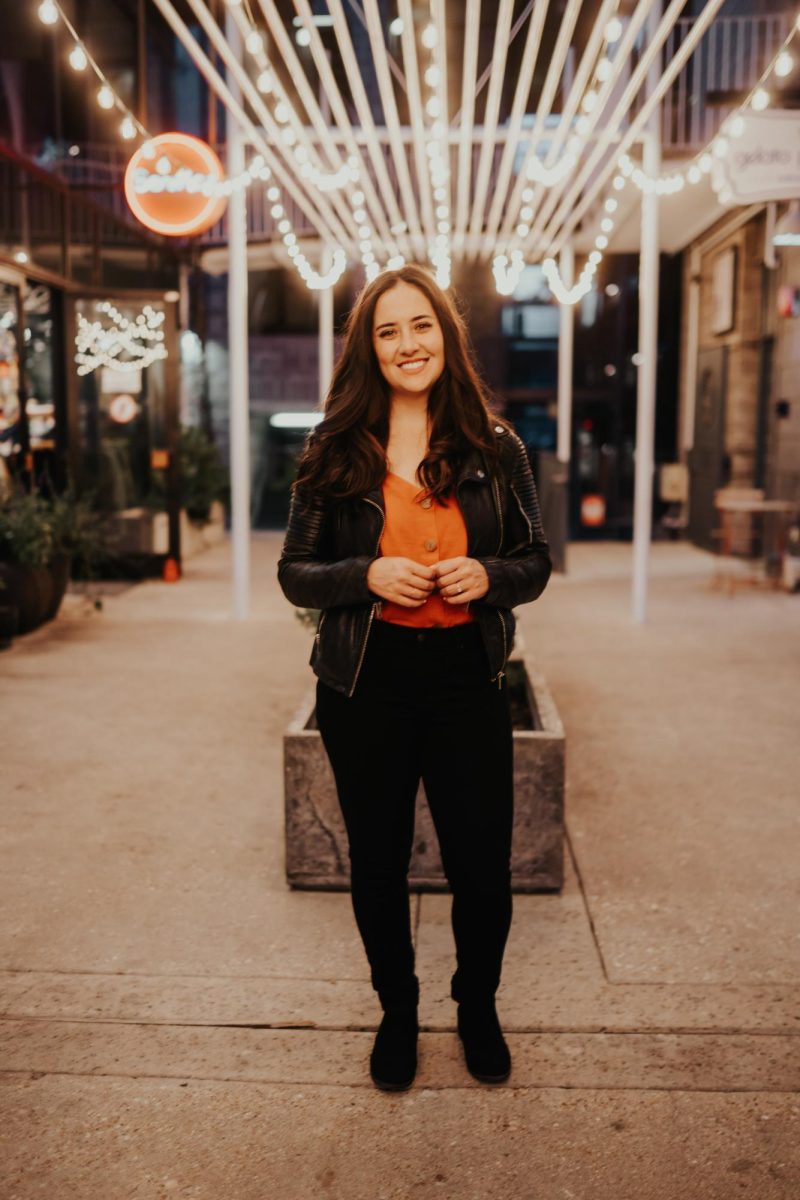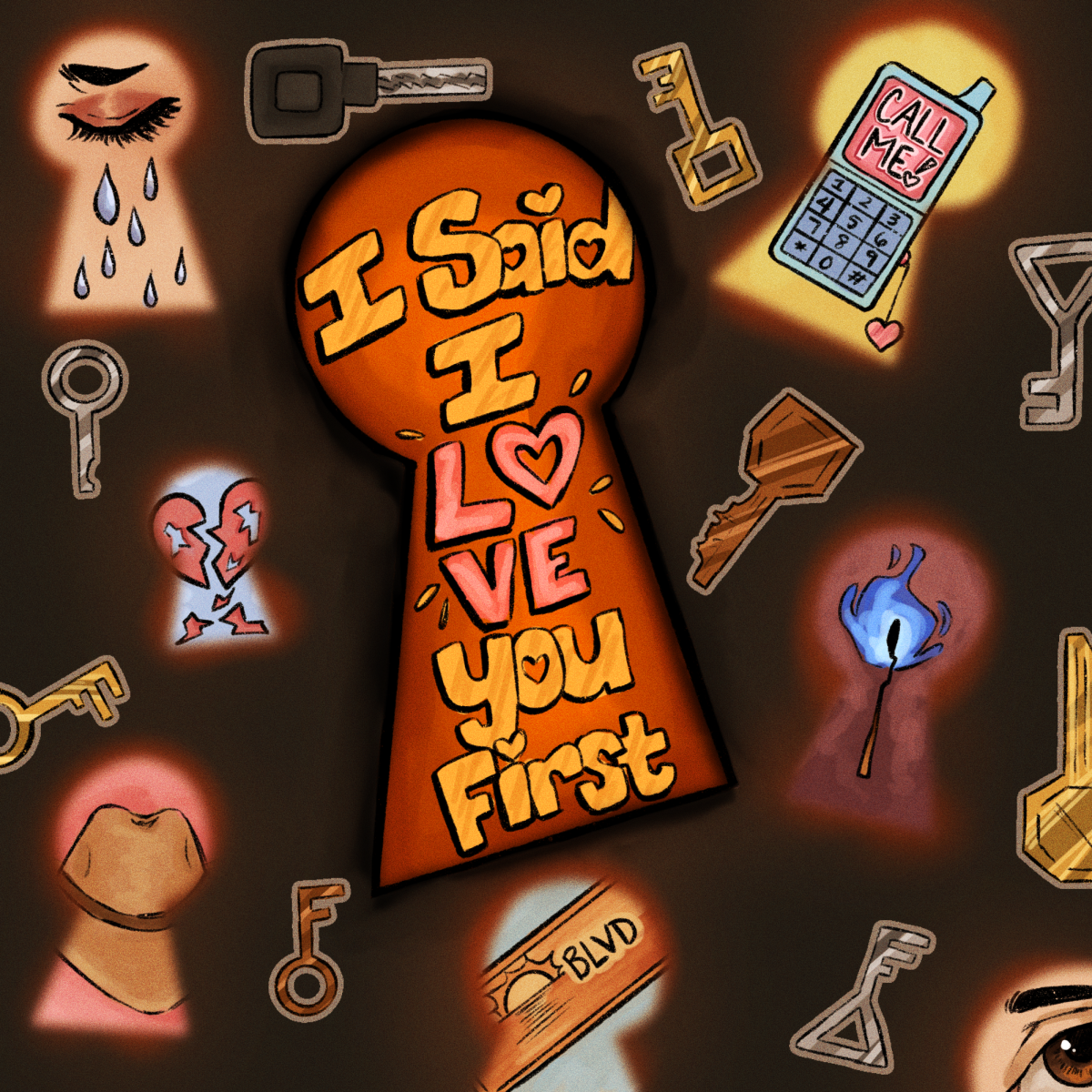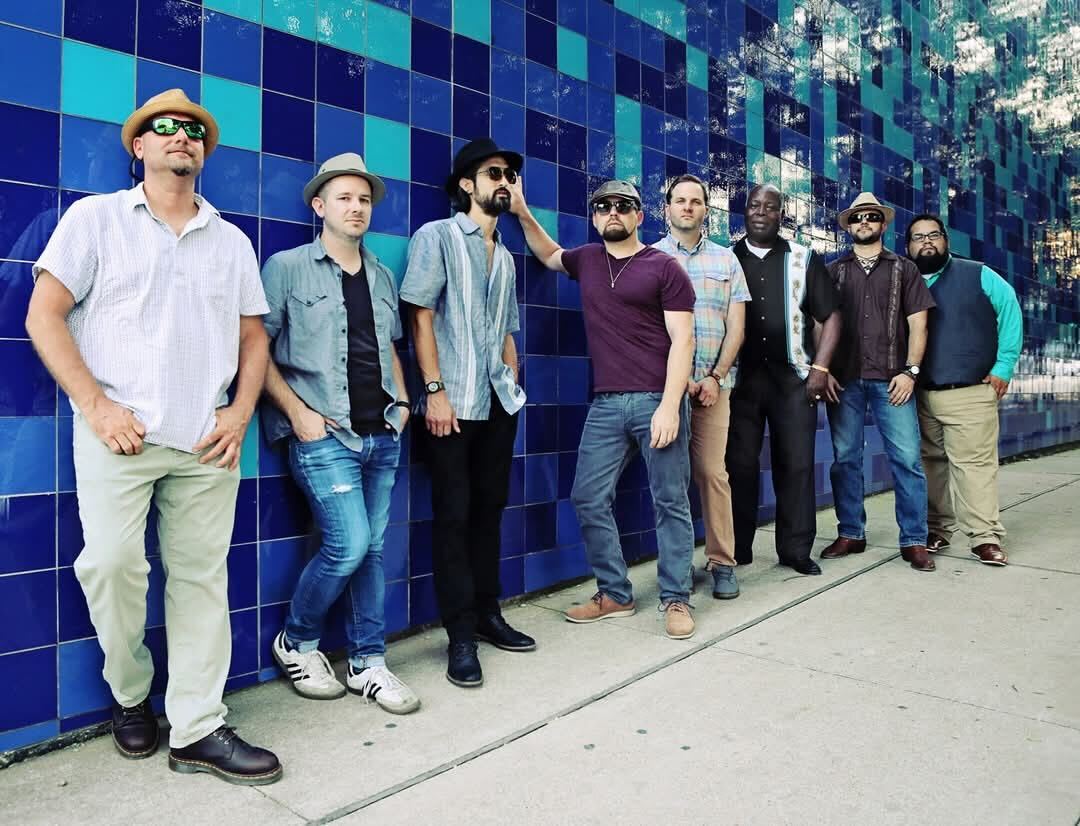For Ramona Gonzalez, composing music and songwriting is second nature. Recording under the moniker Nite Jewel, Gonzalez has approached music-making through a much different method than her contemporaries — that is, until recently. While she usually records on portable 8-track cassette deck, arranging her songs through layered tape edits, she’s transitioned into a cleaner sound with her second full-length album, One Second of Love.
Gonzalez, who will return to play in Austin tonight at Mohawk after her last visit during South By Southwest, spoke with The Daily Texan about her new album.
The Daily Texan: When you were younger, what was your experience with music?
Ramona Gonzalez: I started writing lyrics in journals as a kid and used my mom’s tape recorder at night in my room. Everything on the radio was emblematic of the time, so I would listen to radio shows in my room at night and would mimic an announcement or song that was on popular music radio.
DT: How did that evolve into Nite Jewel?
Gonzalez: Well, that’s when I was really young, like 6 or 7. I started being in bands in college and started listening to different styles of music across the board. I think at one point I was in a shoegaze band and started doing really ethereal vocals and stuff like that. When I started doing Nite Jewel, it was this combination of that style of ethereal vocals with all that other music that I had grown up on. I don’t think it was intentional, it just sort of happened naturally.
DT: What did you study in college?
Gonzalez: I studied Philosophy in college.
DT: Where’d you go?
Gonzalez: First, I went to Barnard College, which is the girl’s school at Columbia University in New York. I went there a few years, dropped out, then I finished my studies at Occidental College in L.A.
DT: How would you compare your older Nite Jewel sound to what you’ve recently done with a band?
Gonzalez: It’s kind of an evolving process. It’s just different fantasies of what I want to do. For this record, it was really important for me to be able to just sing and really do that effectively. I think it’s just the change in my level of confidence that I had and wanting to display that.
DT: Would you say you would compensate your confidence for the fuzzy vocals and reverb layers that you embedded more in your music from the past?
Gonzalez: It’s just about learning when it’s appropriate to use those kinds of effects and not making those one-blanket statements about it being one way or the other. I think it’s a process of learning how you want yourself to be perceived and at this point, I really want to just make music where there’s someone behind the singing who you can access. At certain times, based on the style of song, you can get really crazy reverb gag on it if it were appropriate for the vibe of the song and the atmosphere.
DT: What prompted you to incorporate a poppier element on the new album?
Gonzalez: The songs themselves, except for one or two of them, are less conventional than the songs on the first album. They’re a little bit weirder in style so I wanted the production to be really accessible. I think I also just wanted to make a record that sounded really classic this time around.
DT: In what sense are those songs weird?
Gonzalez: I was really experimenting with things. Like that track, “She’s Always Watching You.” I started by making these weird drums. I was listening to a lot of Prague and Prince at the time. I just think the song is a weird mixture of styles and it’s pretty strange. I wanted to make it punchy because I wanted it to be able to be heard under all the stuff that’s happening.
DT: What do you hope that people get from your music? Has it changed over time?
Gonzalez: I guess I’ve never really thought about it that much. I think if they were to see me at a show I would want them to get this anti-industry-capitalist, anti-status quo vibe. It’s for people who are not just eating up whatever the media gives them as regular. It can be somewhat really off-kilter and you relate to it because you feel off-kilter as a person. That’s what I love about music. It speaks to the part of me that feels like I don’t fit in and I want to be able to give that back.
DT: You talk about showcasing your vocals more on “One Second of Love.” Is there more that you wanted to say this time around since your lyrics are more easily discernible?
Gonzalez: The [lyrics] are similar to my other records: a blend of concepts and personal relationships I was having at the time. It’s also how those personal relationships reflect a larger picture. So on the Good Evening and Am I Real? EPs, it’s questioning the current state of affairs and, also, just writing love songs. It’s pretty much the same for “One Second of Love.” Although, [for the song] “One Second of Love,” I wanted it to be clear. For me, it’s sort of the touchstone of the album.
DT: Could you talk about the “One Second of Love” music video? It’s pretty abstract.
Gonzalez: That video is a visual menagerie. The interesting thing about the video is it’s wanting to be based around two disparate groups coming into contact in the sort of situation that you might just see in normal life, like some chicks at a party. These two groups come into contact and it’s an unlikely meeting. What happens is this explosion of contrary conflicting elements that eventually get into a fluid dialogue with each other. A girl is pushed dancing with a bull and all this stuff starts happening. It’s trying to have a conflict with different cultures and visuals. “One Second of Love” is about blending dualities. I really want it to be visually exciting with the choreography.
DT: Are you trying to blend any dualities throughout the album?
Gonzalez: There’s a sense of it being dark and light at the same time. Like having these pop ideas and sorting them at the same time. That’s kind of what I’ve always been interested in and what I’ve always done without really knowing it at the time, but it sure ends up that way.
DT: Are you over using the fuzz and layers that were more embedded in the music from your past albums?
Gonzalez: No, no, I don’t think so. I would hate to think you can just get over anything musically. Obviously you would want to be better, but I don’t think stylistic choices should ever be thrown out. In fact, I think this album is about continuing the thread of musical styles that shouldn’t be given up. I’m still recording songs that have various degrees of reverb layers and you decide later what you want to keep.
DT: How is the producing process like now that you’ve released an album with a complete band?
Gonzalez: I guess I leave more up to [my husband] Cole production-wise. Before, I would just do it myself or we would do it together. Now that we have equipment more difficult to use, I leave it up to him, but I’ll be demo-ing the songs myself before that, so we have a template to look toward if we’re recording with a band. The songs are always initially started with me or with Cole and me.
Printed on Tuesday, April 17, 2012 as: Artist reflects on her relationship with music





















